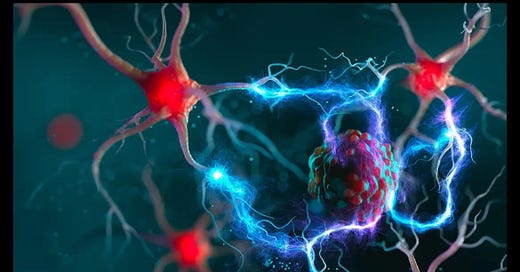Let Your Mind Wonder - New Scientist
SUSTAINABILITY
ChatGPT’s Water and Energy Use Much Lower Than Expected
OpenAI CEO Sam Altman announced in a blog post that each ChatGPT query consumes just 0.000085 gallons (0.32 ml) of water and 0.34 Wh of energy—about the same as an LED bulb running for a few minutes. These figures are far below earlier estimates. 🔗 DETAILAtlantic Ocean Current Collapse Could Trigger Extreme Cold
A groundbreaking study warns that a shutdown of the Atlantic’s crucial current system could bring catastrophic global impacts. Some regions might face temperature drops as severe as -55°F. 🔗 DETAIL
Europe’s Forests No Longer Carbon Sinks
Europe’s once-reliable carbon-absorbing forests are turning into carbon sources due to climate stress, pest outbreaks, and excessive logging—endangering the continent’s climate goals. 🔗 DETAIL
Macron Pushes for Global Climate Pact Before UN Ocean Summit
Ahead of the UN Ocean Conference, French President Emmanuel Macron criticized the U.S. for withdrawing climate funds and called for a binding global agreement to protect the planet. 🔗 DETAILClimate Data Site May Shut Down Amid U.S. Layoffs
Climate.gov, a vital U.S. climate information portal, faces closure due to staffing cuts under the Trump administration. Its shutdown would represent a significant loss in public environmental data access. 🔗 DETAIL
HEALTH
Cancer Breakthrough: Nerve Cells Within Tumors Offer New Treatment Paths
Once overlooked, nerve cells inside tumors are now a key research area. Scientists are exploring treatments using common medications like beta blockers, epilepsy drugs, and Botox to disrupt neuron-tumor communication. 🔗 DETAILCRISPR Gene Editing Offers Hope for Irreversible Kidney Disease
Researchers have used CRISPR technology to reverse the damage from polycystic kidney disease in animal studies, providing new hope for treatment of this once-untreatable condition. 🔗 DETAIL3D-Printed Organs Get Boost with Smart Vascular Design
A Stanford team developed a computational tool that can rapidly design complex blood vessel networks—essential for the viability of 3D-printed organs and transplant solutions. 🔗 DETAILNew Blood Test May Diagnose Celiac Without Biopsy or Symptoms
The WBAIL-2 test promises a less invasive diagnosis method for celiac disease, eliminating the need for symptom-triggering gluten consumption or painful biopsies. 🔗 DETAIL
DIGITAL / TECHNOLOGY / SCIENCE / AI
Anthropic Shifts Focus to National Security AI
Anthropic has unveiled AI models developed specifically for U.S. national security use, signaling a pivot from its usual commercial products toward intelligence and strategic defense applications. 🔗 DETAILStarlink Satellites Threaten Deep-Space Research
Radio leaks from SpaceX’s Starlink satellites are disrupting efforts to detect signals from the universe’s earliest stars, potentially jeopardizing key astrophysical studies. 🔗 DETAILCEOs Turn to AI Avatars for Public Engagement
Executives are beginning to use AI clones for media appearances and interviews. Startups like Personal AI and Tavus offer digital doubles trained on real voices and behavior patterns. 🔗 DETAILBirth Month Linked to Longevity, Study Finds
New research indicates that individuals born in May and November are statistically more likely to enjoy longer, healthier lives. 🔗 DETAILAI May Disrupt Economy, Warns Klarna CEO
Sebastian Siemiatkowski, CEO of Klarna, warns that rapid AI integration could lead to short-term economic turbulence and possibly a recession, particularly affecting white-collar roles. 🔗 DETAILAI Therapy Bots Could Reinforce Harmful Stereotypes
A Stanford-led study finds that AI therapy bots may unintentionally promote harmful mental health myths and respond poorly in crisis situations. 🔗 DETAIL
ENERGY / TRANSPORTATION
Iron Salt Battery Revival Promises Affordable Energy Storage
Iron sodium salt batteries—first developed in the 1980s—are being reengineered as a low-cost, sustainable energy solution. Inlyte claims costs could drop from $135/kWh to $35/kWh. 🔗 DETAILDevice Converts Air Into Clean Gasoline
U.S. startup Aircela has developed a fridge-sized unit that synthesizes gasoline from atmospheric CO₂, using only air, water, and renewable energy—without generating harmful waste. 🔗 DETAILSupersonic Flights Could Return as U.S. Lifts Ban
Trump’s administration has revoked a decades-old ban on supersonic commercial flights. The FAA is now working on new noise regulations to support next-gen air travel. 🔗 DETAILGermany Tests EV Charging While Driving
A new stretch of the German Autobahn is testing inductive charging for EVs. The E|MPOWER project allows vehicles to charge while in motion, potentially transforming charging infrastructure. 🔗 DETAILNuclear Fusion Milestone: W7-X Breaks Energy Record
Germany’s W7-X fusion reactor has achieved a new global record, generating 1.8 gigajoules over six minutes—marking major progress toward clean, limitless energy. 🔗 DETAIL
CYBERSECURITY
Google Fixes Major Security Flaw Affecting User Phone Numbers
Google has resolved a critical vulnerability that exposed nearly all users' recovery phone numbers without their knowledge. 🔗 DETAIL
CURIOSITY
Ukraine’s Drone Tactic Sparks Global Security Fears
"Operation Spiderweb" showed how low-cost drones can breach national borders and bypass modern defense systems—prompting concerns in the U.S. and UK. 🔗 DETAIL34-Million-Year-Old Forest Discovered Under Antarctic Ice
Scientists have uncovered a hidden ecosystem beneath East Antarctica’s glaciers, featuring ancient rivers, forests, and possible palm trees—pointing to a lush prehistoric climate. 🔗DETAIL














